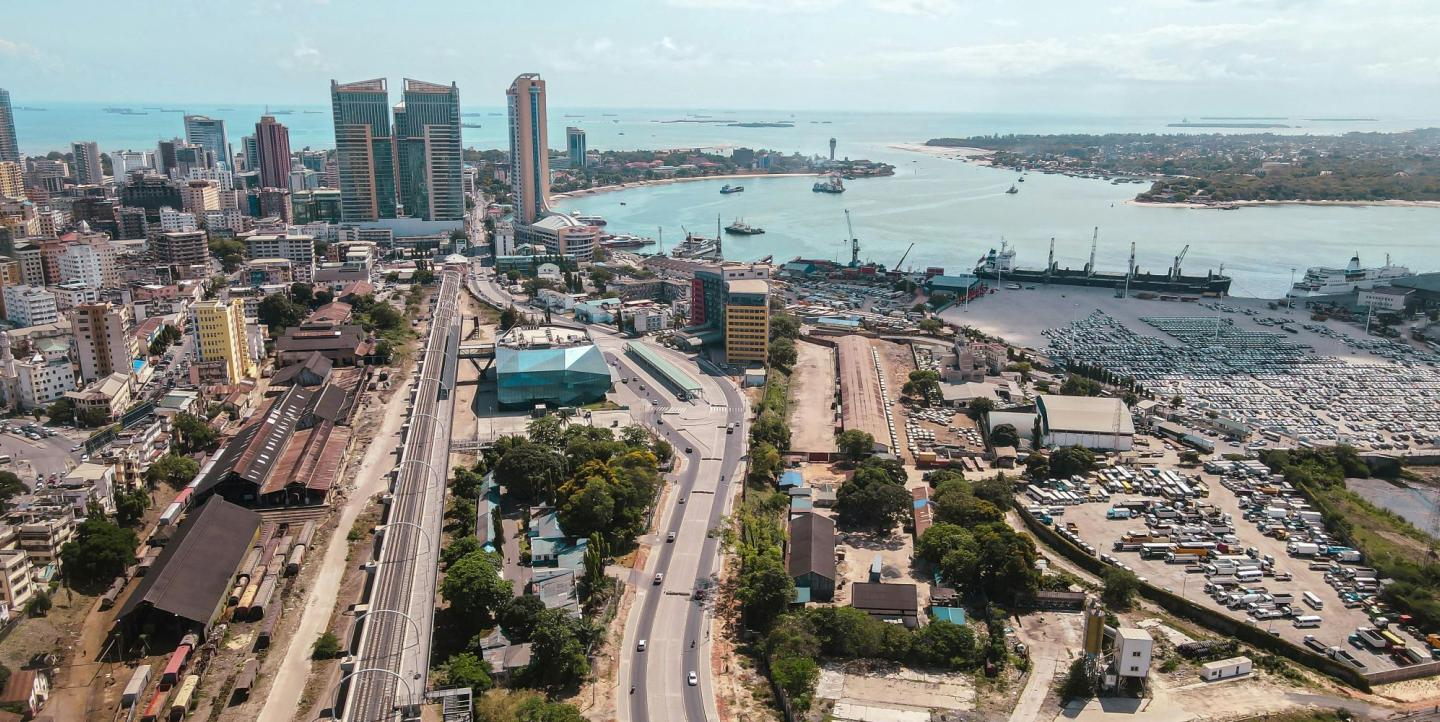In Tanzania, politicians own or influence many media outlets, according to Reporters Without Borders’ 2024 World Press Freedom Index. Privately run newspapers in the country tend to rely on the government for funding, receiving between 40 and 80% of their income from state advertising.
Media that doesn’t produce content in line with the government can have resources evaporate and as a result, struggle to stay afloat and meet their financial obligations. This reliance on governmental support for sustainability has undermined newsrooms' editorial independence and ability to hold those in power accountable, leading to a decline in investigative journalism in particular.
“At times, journalists may find a big story but they are not digging it out,” said Deodatus Balile, chairman of the Tanzania Editors’ Forum. “Journalists are underpaid and media outlets struggle to fund investigative journalism – it is regarded as luxurious.”
In an effort to improve the state of journalism in the country, a team of media practitioners and human rights advocates joined together to create the Tanzania Media Foundation (TMF) in 2015. An offshoot of the Tanzania Media Fund, for almost a decade now TMF has worked with the goal to help newsrooms produce quality investigative reporting.
A “nurturing” approach
TMF runs trainings to build journalists’ investigative reporting skills, explained TMF Executive Director Dastan Kamanzi. It also helps media outlets improve their financial sustainability.
“Our focus is the internal environment of the media because we believe that if the organizations have strong internal systems and journalists’ capacities to practice investigative journalism are upgraded, they can [better] navigate the economic, political and social environment,” said Deodatus Mfugale, one of TMF’s founders.
The Foundation employs a “nurturing” approach when assisting journalists and newsrooms – teaching them how to generate investigative story ideas, interview sources, and write the articles that follow.
“We nurture because, over time, we found that journalists and media outlets attend workshops and seminars daily yet the quality of journalism content is low,” explained Mfugale. “[In our approach, journalists] learn from experts after which we meet to discuss story ideas and provide funds to support them. For the organizations, experts teach business plans for financial sustainability, media management and technology.”
The PIJ-Bank
TMF runs the Public Interest Journalism Bank to help journalists and newsrooms produce high-quality journalism. The Bank is composed of three pillars: Public Interest Journalism Ideas, Public Interest Journalism Story, and Public Interest Journalism Story Behind Story.
Under Ideas, reporters can submit investigative pitches for review. If selected, they receive mentorship and financial support to carry out their reporting.
Through the Story pillar, journalists and newsrooms can submit stories they have published for consideration to be analyzed for competence and quality, and recognized during the annual Tija Journalism Awards which celebrate outstanding investigative stories.
For the Story Behind Story initiative, journalists and newsrooms can provide documentation highlighting the most significant impacts of investigative stories they’ve produced, for TMF to assess and for consideration to be honored at the Tija awards.
“The PIJ-Bank represents a significant step forward in TMF’s mission to strengthen public interest journalism in Tanzania,” said Kamanzi. “By supporting and recognizing journalists pursuing accountability and transparency, TMF empowers the media to play a more prominent role in fostering a responsible and accountable society.”
Grants to support original reporting
TMF administers grants to journalists and media outlets to carry out investigations. As of today, according to Kamanzi, the Foundation has supported over 3,000 journalists and 150 media outlets across Tanzania. With this funding support, journalists have published unique reporting with a strong focus on rural issues and voices.
“With training and support from TMF, I have investigated social, economic and political issues, keeping the public informed,” said Sanula Athanas, a reporter with IPP Media.
The professional development opportunities TMF offers have equipped journalists with advanced investigative and data journalism, fact-checking and ethical reporting skills, Athanas added.
The Tija Desk
In January, TMF established the Tija Desk, which means “productivity” in Swahili, at the media outlet, Mwananchi Communications Limited. This unit focuses on in-depth reporting and investigative journalism, and strives to enhance productivity and reporting standards.
“The desk comprises a team of nine reporters who have received training and support through TMF’s programs and are pursuing different investigations,” said Rashid Kejo, an editor at Mwananchi.
This May, Mwananchi published its first special report focusing on how the poor condition of ferries in Dar es Salaam, and the lack of maintenance they receive, puts in jeopardy the lives of over 60,000 passengers who use the ferry services on a daily basis.
“TMF’s support has enabled us to improve our reporting quality and contribute more effectively to public discourse and accountability in Tanzania,” said Kejo.
Challenges and looking ahead
As with many media initiatives these days, funding has been a primary challenge for TMF.
“We plan to launch the Jo-Bazaar, a platform where story ideas with a focus on a given thematic area will be sold to potential funders and sponsors like non-governmental and civil society organizations,” said Kamanzi. “Funds raised will be used to help journalists pursue stories.”
The Foundation also plans to approach universities and journalism schools in Tanzania to discuss how to further bridge the gap between classroom teaching and field experience for students.
“We already defined our direction and know what we want to achieve moving forward. We just have to keep fundraising to be able to achieve our goals because funding remains a challenge,” Kamanzi added.
Photo by Iam Alex Levis via Pexels.

